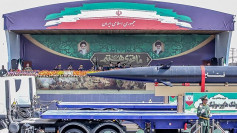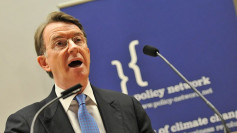Russian President Vladimir Putin, speaking in a state television film commemorating his 25 years in power, stated that "there has been no need to use those (nuclear) weapons ... and I hope they will not be required" in Ukraine. The comments came as Moscow seeks a "logical conclusion" to the conflict that began in 2022, a war that has strained Russia's relations with the West.
Putin emphasized, "We have enough strength and means to bring what was started in 2022 to a logical conclusion with the outcome Russia requires." His remarks were part of a broader narrative that seeks to justify Russia's approach and underscore its military capabilities amid the protracted war against Ukraine.
The Russian leader also addressed historical context, noting that Russia did not launch a full-scale invasion in 2014 - referring to the annexation of Crimea - because the country "was not ready for such a frontal confrontation with the entire collective West." He claimed that Russia "sincerely sought to solve the problem of Donbas by peaceful means" and maintained that reconciliation with Ukraine is "inevitable."
Ukrainian President Volodymyr Zelenskyy, however, has challenged Moscow's posture. At a joint press conference with Czech President Petr Pavel, Zelenskyy said, "Putin is very eager to show off his tanks at the (Victory Day) parade, but he should think about ending his war." He expressed deep skepticism about Russia's proposal for a 72-hour ceasefire, noting that "even during Easter, despite promises - including to the United States - Russia carried out more than a hundred assaults."
The Kremlin's reaffirmation of its nuclear doctrine, revised in November 2024 to lower the threshold for use in response to a conventional attack backed by a nuclear power, reinforces Putin's message. "They wanted to provoke us so that we made mistakes," he remarked, speaking beside a portrait of Tsar Alexander III in the film.
Putin's remarks arrive as the conflict in Ukraine continues to escalate, marked by ongoing drone attacks, missile strikes, and fierce ground battles. The war, which began when he ordered thousands of Russian troops into Ukraine in February 2022, has evolved into Europe's largest ground conflict since World War Two and remains a flashpoint for East-West tensions.
Critics of Moscow's military strategy, including Western leaders and Ukraine's government, argue that the conflict is far from a "logical conclusion" for Ukraine. Ukrainian officials have repeatedly called for a substantial 30-day ceasefire rather than the limited pauses Moscow has offered, emphasizing that any temporary truce fails to address the continuous nature of Russian assaults.
Meanwhile, the international community remains divided. U.S. President Donald Trump has publicly criticized the protracted nature of the war, warning that unresolved conflict could escalate into a wider confrontation. Former CIA Director William Burns has cautioned that there exists a real risk of nuclear escalation, a possibility that Moscow denies.





